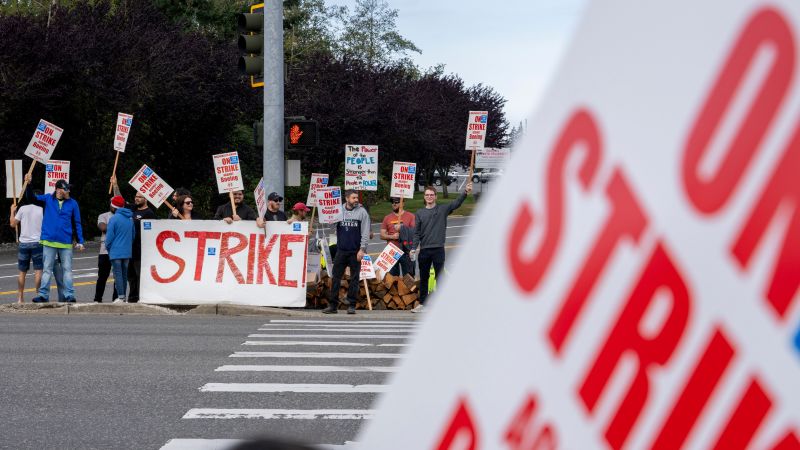The Boeing strike that began on Friday stems from executives prioritizing profit over quality, resulting in financial struggles for the company since 2018. The CEO received a substantial pay raise while the wages of unionized employees remained stagnant, leading to frustration and anger among workers. Years of mismanagement, combined with pandemic-related inflation and a resurgence in labor movements, made the strike inevitable as workers demanded better conditions.
Boeing has a history of strained relations between management and unions, with past strikes driven by animosity from both sides. The comments made by CEO James McNerney in 2014, suggesting employees were cowering, further fueled tensions between the company and its workers. The strike presents a challenge and an opportunity for Boeing’s new CEO, Kelly Ortberg, who has the task of repairing the relationship between the company and its unionized workforce while also facing other crises within the company.
Ortberg, an experienced mechanical engineer in the aerospace industry, has been trying to build goodwill with workers since taking over as CEO five weeks ago. Despite facing multiple federal investigations and other ongoing crises, Ortberg engaged directly with workers and acknowledged their frustrations over past contract negotiations that reduced benefits. While the strike may not be ideal for the new CEO, there is optimism that it can be resolved quickly with Ortberg’s understanding of the issues at stake.
Despite Boeing’s offer of a 25% pay increase over four years, the unionized workers voted to reject the deal, pushing for a higher increase to make up for years of inflation and job insecurity. Resentment among workers also stems from past concessions made by the union to keep Boeing from building more nonunion plants, as well as the moving of Dreamliner production to South Carolina. The rejection of the offer reflects the broader resurgence of power among unions in the United States, influenced by past concessions made by workers during times of company struggles.
The union’s rejection of Boeing’s offer, despite being described as the best ever seen from the company, highlights the workers’ demands for better job security, time off, and higher wages to address past sacrifices. The strike represents a stand by workers against the company’s history of prioritizing cost efficiency over employee well-being. The strike also stands as a collective effort among workers to exercise the power they have in the moment, influenced by past experiences and the shifting dynamics between management and labor within Boeing.


